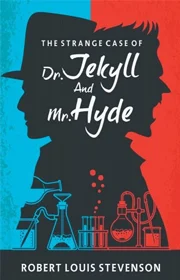
“The Strange Case of Dr. Jekyll and Mr. Hyde” tells the tale of a scientist named Dr. Jekyll who, in an attempt to separate the good and evil sides of his personality, creates a potion that transforms him into the sinister Mr. Hyde. As Hyde’s actions become increasingly alarming, the novella unfolds through the eyes of Dr. Jekyll’s friend, Mr. Utterson. The story explores the consequences of tampering with one’s own identity and the moral dilemmas arising from the duality within human nature.
Read The Strange Case of Dr. Jekyll and Mr. Hyde Flipbook:
Listen to The Strange Case of Dr. Jekyll and Mr. Hyde Audiobook:
Title: The Strange Case of Dr. Jekyll and Mr. Hyde
Author: Robert Louis Stevenson
Published: 1886
Genre: Gothic fiction, novella
Setting: Victorian London
Legacy:
Classic example of the “double” or “split” personality theme.
Explores themes of duality, morality, and the consequences of tampering with one’s identity.
Continues to influence literature, psychology, and popular culture.
Adapted into numerous plays, films, and other works.
Provokes ongoing analysis and discussion in literature courses.
Themes:
Duality of human nature
The consequences of scientific experimentation
The struggle between good and evil
The limits of social propriety